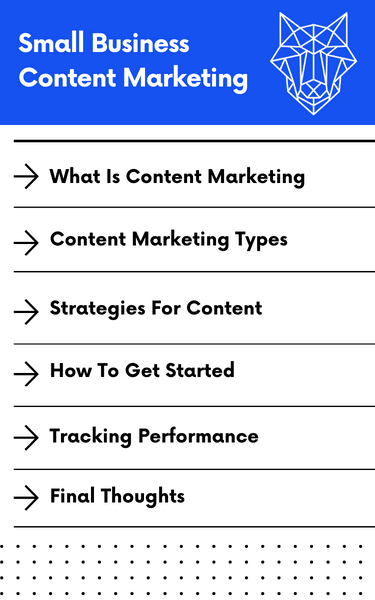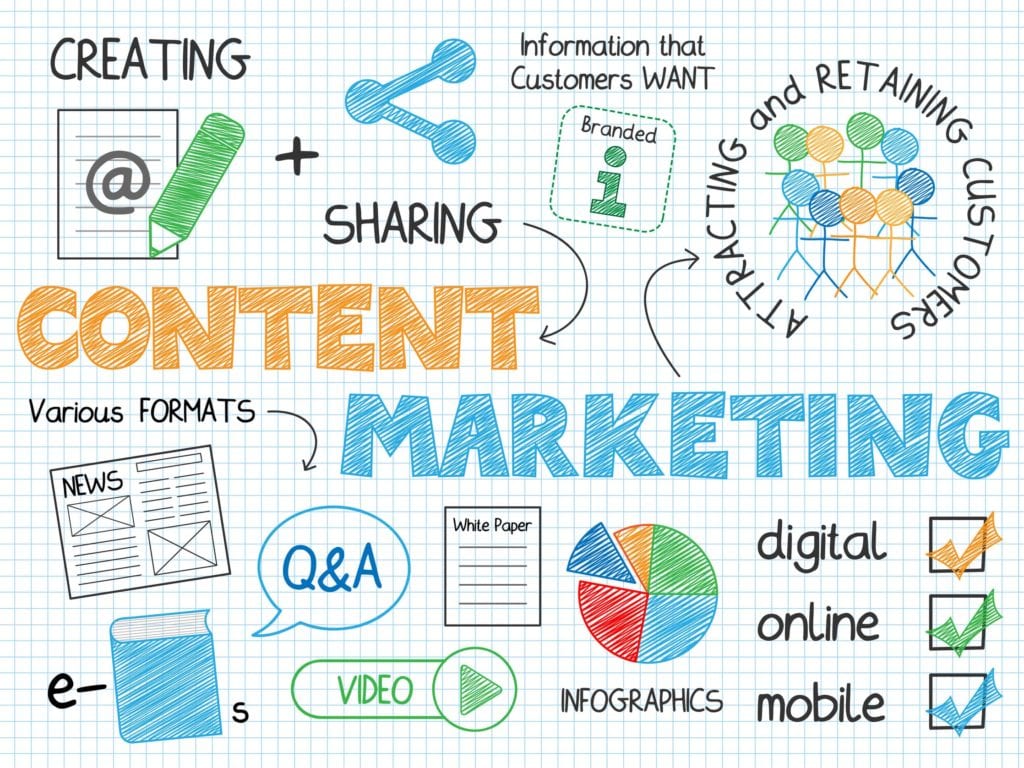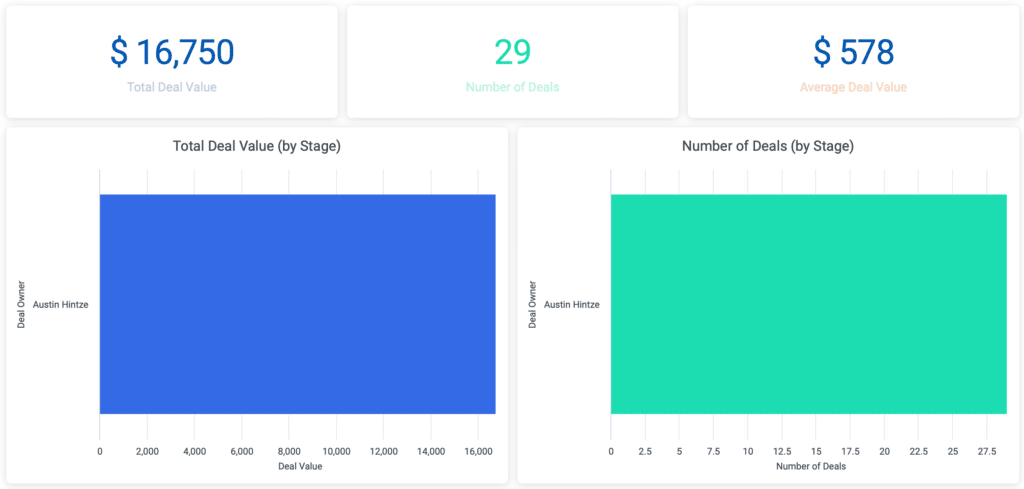Last updated on December 5th, 2024 at 01:03 pm
Marketing a small business can be a challenge with limited time and budgets. In return, many small businesses rely on word of mouth throughout the community in order to grow their business. This is something I saw firsthand when I worked as a home inspector for a small business.
During that time, expanding to a new market seemed impossible. All while the company was growing in our local market, it seemed like it was really just staying in the same place.
However, what if there was another way to grow your business? One that did not rely on word of mouth. One that is less expensive and provided a passive return on investment. Enter, content marketing.
Small businesses can utilize content marketing to grow their business outside of regular word of mouth and without having to use paid advertising. In addition, content marketing does not have to be expensive and it can really explode your growth.

What Is Content Marketing?
Content marketing is a form of marketing by which online material is created to be shared and develop an interest in a product/service. The ideal use of content marketing is to develop content your potential customers want to engage with. Through engagement, the content helps to build trust between you and the potential client.
Moreover, since you created the content, you become an authority in the eyes of the potential customer. This dramatically increases the chances of getting a sale.
Versus paid advertising or marketing, businesses are forced to build trust and authority quickly in order to convert prospects. Think… landing pages or salespeople.
It’s a way to share your knowledge as a business and passively grow your business without having to rely on sales tactics.
Content marketing is growing in popularity among marketers. According to Hubspot, 82% of marketers use content marketing in their strategy.

Different Platforms For Content Marketing
So now that we know what content marketing is and why we should use it, how do you get started? Well, content marketing is not just one form of marketing. There are many types and platforms you can use for your business.
If you are planning to do the content marketing yourself, my suggestion would be to pick the one you are most comfortable with and stick with it for at least six months.
Let’s check out the different content marketing platforms and strategies.
Email Marketing
With email marketing, you can develop content within emails to send to people interested in your product or services. You can also send this content to current customers to help sell more products/services. At WolfPack, we use marketing automation tools to help build email marketing campaigns.
Social Media
You can make a huge impact on social media if you focus on the platform where your audience is. For example, a local home inspection company might want to target real estate agents and most real estate agents are using Instagram. Therefore, if I was a home inspection company, I would create content for Instagram and try to engage with my audience there.
Learn how to use social media for inbound marketing or check out our social media management plans.
Blogging
Blogging can be used for a variety of businesses. While blogging can be easy, it is also difficult to get started. There are some search engine optimization basics you need to know. Moreover, you should attempt to blog for at least 6 months before seeing improvements. When we perform search engine optimization services for our clients, we typically see results after 6 months.
Podcasting
Podcasting is a great way to highlight experts in a field and can easily be coupled with your blog, email marketing, or social media.
For example, a home service podcast could highlight top experts in their industry on the podcast. That podcast can then be published in a blog, a YouTube video, on social media, and even in an email newsletter.
Videos
Just as with podcasting, YouTube videos are a great way to produce content for your social media, email marketing, or your blog.
Modern marketing strategies take advantage of the trending short-form video style on platforms like TikTok, Reels, & YouTube Shorts. For our social media clients, we have seen massive exposure come from these platforms.
Here is an example YouTube video that helped a local home inspection company.
Infographics
Using platforms like Canva, you can create beautiful graphics with tons of information for your customers. Then, these infographics can be shared via your email, blog, and social media.
Over recent years, Canva has made massive strides in making a graphic design platform for everyone. Recent updates are starting to include video as well in their templates.
Webinars/Seminars
Hosting webinars are a great way to bring many people together at once. You could even partner with other companies in your industry that are trying to market to the same audience.
When running webinars, seminars, or presentations, be sure to collect your visitor/audience contact information and then use a marketing automation system to track the return on investment from your seminar.
Final Thoughts on Content Marketing Platforms
Ultimately, with each platform, the idea is to use the medium to share content. The content should be insightful and valuable. Let me say that again, the content should be insightful and valuable.
Therefore, if you have been or are stuck with your content marketing strategies rethink your content. How can you bring more value? The more value you bring to the table, the bigger the audience you can potentially reach.
Which Strategy Is Best?
There is not really one best content marketing strategy. The best one would be the one that fits your business, and that you are good at.
Here are a few examples:
- A pizza parlor may rely on Instagram content marketing strategies by taking pictures of their pizzas.
- A local plumber may rely on blogging about issues related to plumbing systems in their area.
- A real estate agent may use video to show the homes available on the market.
As you can see, not one strategy is best. The best strategy is one that is measured and effective for you. At WolfPack Advising, we always recommend starting small, sticking with it, and then slowly expanding into other content marketing strategies.
How Do You Get Started In Content Marketing For Your Small Business?
Doing It Yourself
The best piece of advice I can give is to just start somewhere. With any of the above strategies, more likely than not, there will be a learning curve and that’s okay! At the beginning of your content marketing strategy, nobody is listening to you anyway. While that seems harsh, it is true.
The next piece of advice I can give is to do research and constantly learn how to improve. For example, if you are a plumber and you are trying to learn how to blog, you should look up resources to learn how to blog. Everything you will need is free and available online.
While most small businesses have to revert to doing content marketing themselves, other businesses may opt to hire a firm to do it for them.
Hiring A Firm For Your Content Marketing
If you are hiring another company for your content marketing strategies we have a few recommendations.
- Develop a close working relationship – this will help bridge communication gaps when they occur.
- Look for someone with a proven track record.
- Ask how are they going to help you measure performance. The company should be eager to show you how to measure return on investment.
Hiring a firm to help you with your content marketing strategies is a great idea. It can alleviate a lot of your workload and allow your company to focus on what matters, your customers. Just be sure to do thorough research and choose a partner that wants to see you succeed.
At WolfPack Advising, we have a proven track record, a five-star rating online, and help customers see their exact return on investment.

How To Measure Performance From Content Marketing
After you have implemented content marketing strategies for your small business, the next step is to measure performance. Everyone is in the business of making money, so is it boosting business? Here are some examples to find out:
Social Media
- How many clicks to your website are you receiving? (Use Linktree)
- How many clicks to your phone number are you receiving? (Use Lead Tracking)
- Is your following/likes increasing?
Email Marketing
- Has your email list continuously grown?
- Are people interacting and engaging with your emails? I.e. clicking, replying.
- Can you put conversion rates on your emails? I.e. sales from your email marketing.
- Does your CRM integrate with your scheduling software?
Blogging
- Has the number of website users grown?
- Are people interacting and engaging with your blogs?
- Are you able to see more business coming from online sources?

To measure the performance of your content marketing strategies, it is best to look at many different factors. In some cases, it may be difficult to measure the exact ROI. However, there are many tools out there today that help bridge some of those gaps.
For example, our CRM has conversion goals and integrates with many home inspection software to track ROI. So, if someone clicks on a certain link in an email that could count as a “conversion” for your business.

In another example, a resource like lead tracking can help you find exactly where calls are coming from.

Setting Goals & Realistic Expectations
There is no marketing strategy on the market that is going to solve all of your problems. Each strategy has specific pros and cons. Real growth comes from perseverance and making adjustments along the way. For example, if your current blogs are not getting any traffic, find out why. Are you choosing good keywords that your site can rank for? Are your blog’s original and provide a unique perspective?
As you begin, set SMART goals, and do not be afraid to make adjustments to those along the way. Things change as we become accustomed to new strategies.
Final Thoughts
Content marketing for small businesses is a great way to get started in marketing. Rather than paid advertising, content marketing helps establish your business as a trustworthy authority.
If you are looking to get started in content marketing, be sure to provide something of value to your potential customers. Then, set tracking in place so you can see the return on your investment. You can also read the book Youtility. It’s one of my favorites on marketing.
Above all else, content marketing takes time. It was a year before I saw significant impacts from content marketing using blogs.
So, how do you plan to use content marketing for your business? What roadblocks do you think you will encounter along the way?




